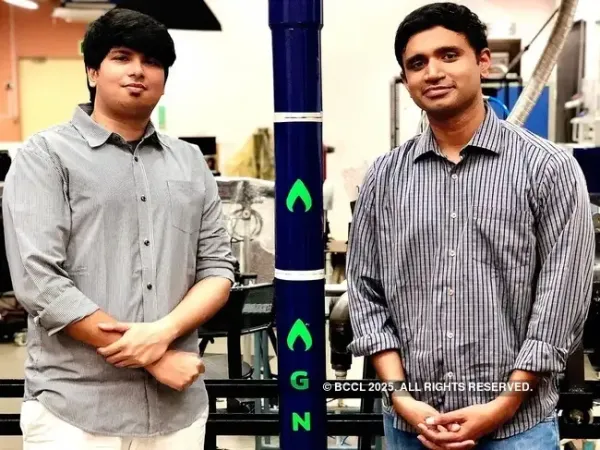Spacetech startup Agnikul Cosmos has raised about Rs 150 crore ($17 million) in a new funding round, giving the company a valuation of $500 million. The investment came from several family offices and well-known institutional backers, including Advenza Global Limited, Atharva Green Ecotech LLP, HDFC Bank, Artha Select Fund, Prathithi Ventures, and 100X.VC.
Agnikul said the fresh capital will be used to scale production of aerospace and rocket components and to push forward its stage-recovery programme. Part of the funds will support the creation of an integrated space campus on the 350 acres allocated by the Tamil Nadu government. This site will host end-to-end facilities for manufacturing and testing launch vehicle systems.
The funds will also be used to strengthen the company’s reusable launch architecture, using its recently granted patent designed to extend the life of upper stages. Agnikul believes this technology will pave the way for greater reusability and more cost-efficient access to orbit, bringing it closer to becoming the world’s first recoverable small-satellite launch vehicle.
Speaking about the company’s progress, CEO and cofounder Srinath Ravichandran said, “Given our previous successful controlled ascent launch that allowed us to demonstrate all our patented technologies with ISRO and IN-SPACe support, we have now been able to scale our strategy to include lower stage recovery and upper stage extension — features that will make the unit economics of launch services much better. This fund raise allows us to work on such missions while also focussing on scaling launch frequency and building for the world, from India.”
Cofounder and COO Moin SPM added, “With growing demand and more than a dozen customers eager to launch with us, scaling our operational depth was the natural next step. The indigenous facility, which is planned near the upcoming launchpad of India, will equip us to serve these missions on schedule and with the responsiveness the market expects.”
In September, Agnikul revealed that it had set up a new additive manufacturing facility dedicated to aerospace and rocket systems. This centre brings together an end-to-end ecosystem covering design, simulation, 3D printing, post-processing, and final finishing.
The aim is to improve quality, enhance reliability, strengthen supply chain resilience, and cut space-building costs by half. For the first time in India, the facility also enables 3D printing of aerospace and rocket components of up to one metre in height.
Agnikul said the fresh capital will be used to scale production of aerospace and rocket components and to push forward its stage-recovery programme. Part of the funds will support the creation of an integrated space campus on the 350 acres allocated by the Tamil Nadu government. This site will host end-to-end facilities for manufacturing and testing launch vehicle systems.
The funds will also be used to strengthen the company’s reusable launch architecture, using its recently granted patent designed to extend the life of upper stages. Agnikul believes this technology will pave the way for greater reusability and more cost-efficient access to orbit, bringing it closer to becoming the world’s first recoverable small-satellite launch vehicle.
Speaking about the company’s progress, CEO and cofounder Srinath Ravichandran said, “Given our previous successful controlled ascent launch that allowed us to demonstrate all our patented technologies with ISRO and IN-SPACe support, we have now been able to scale our strategy to include lower stage recovery and upper stage extension — features that will make the unit economics of launch services much better. This fund raise allows us to work on such missions while also focussing on scaling launch frequency and building for the world, from India.”
Cofounder and COO Moin SPM added, “With growing demand and more than a dozen customers eager to launch with us, scaling our operational depth was the natural next step. The indigenous facility, which is planned near the upcoming launchpad of India, will equip us to serve these missions on schedule and with the responsiveness the market expects.”
In September, Agnikul revealed that it had set up a new additive manufacturing facility dedicated to aerospace and rocket systems. This centre brings together an end-to-end ecosystem covering design, simulation, 3D printing, post-processing, and final finishing.
The aim is to improve quality, enhance reliability, strengthen supply chain resilience, and cut space-building costs by half. For the first time in India, the facility also enables 3D printing of aerospace and rocket components of up to one metre in height.








